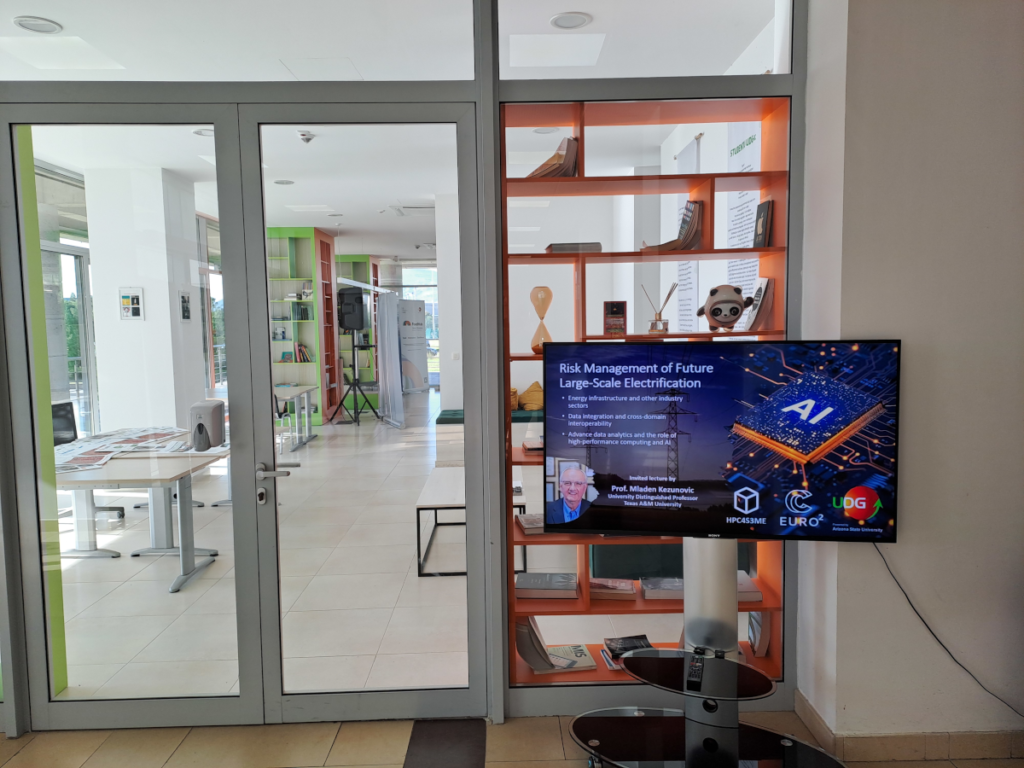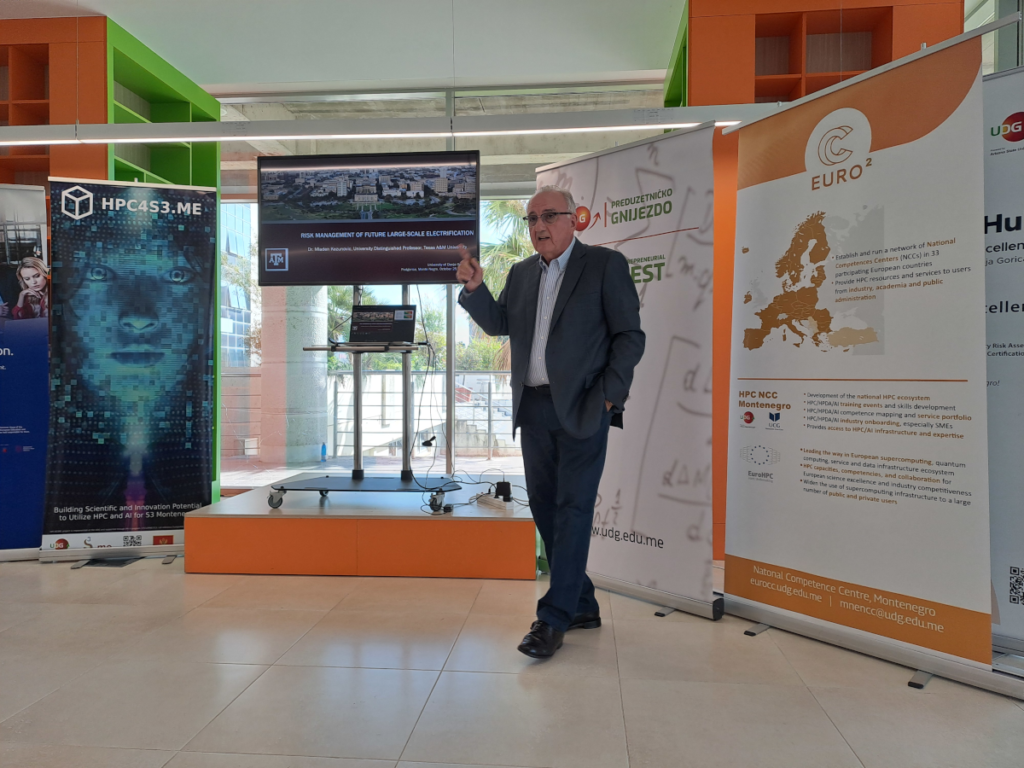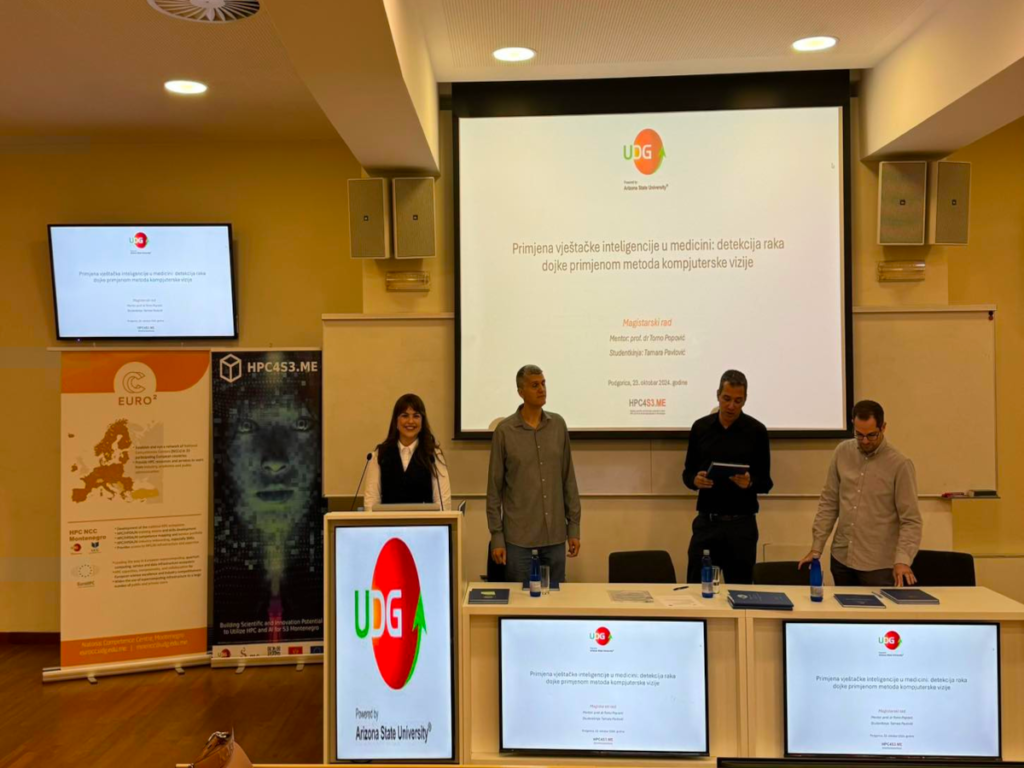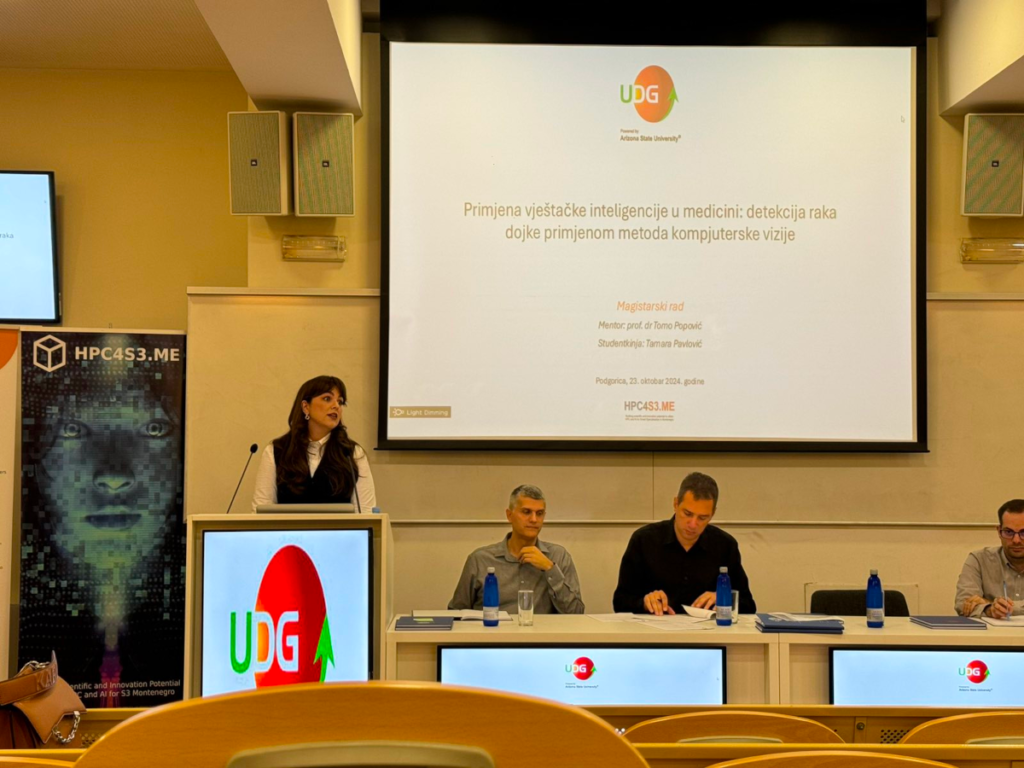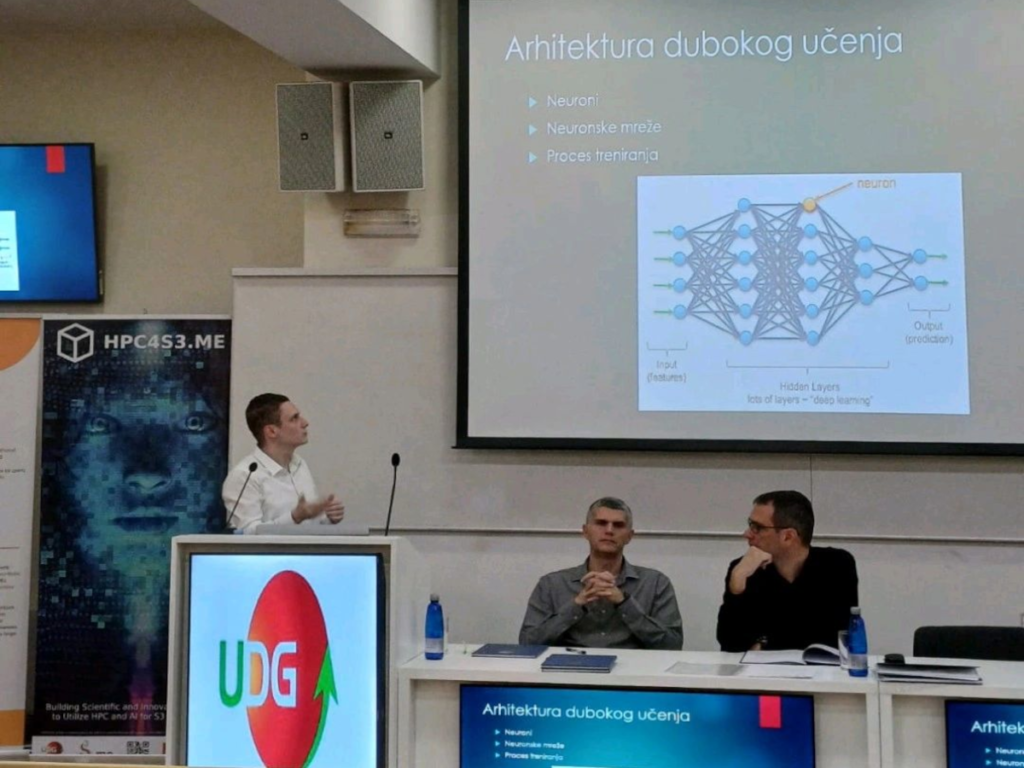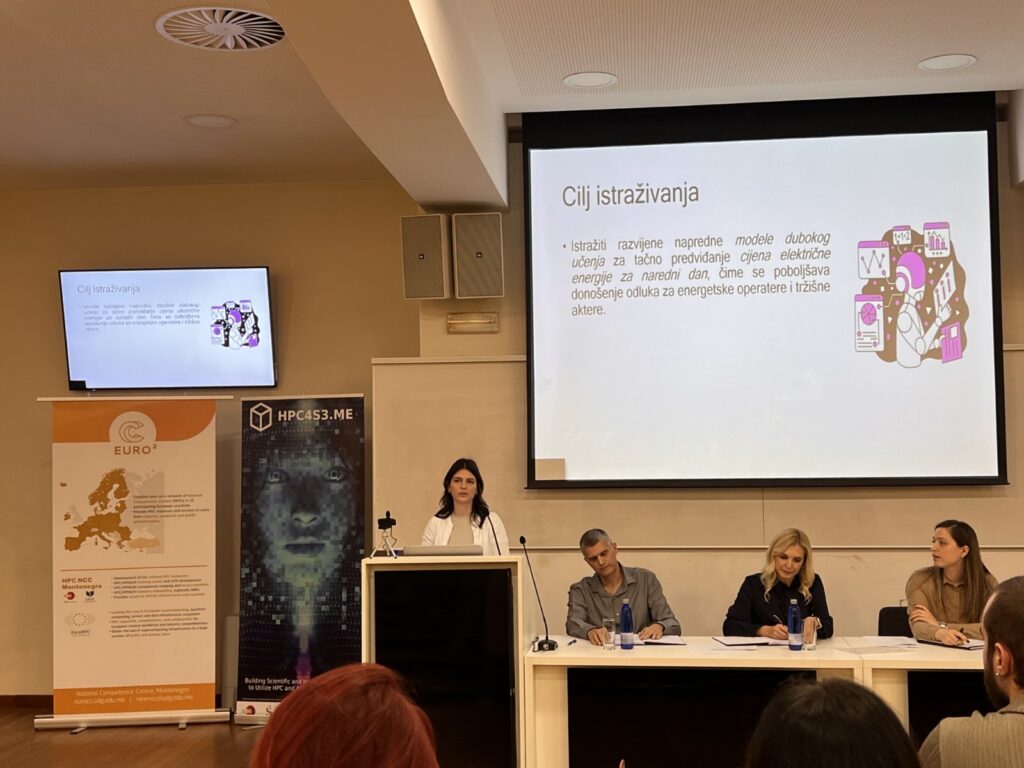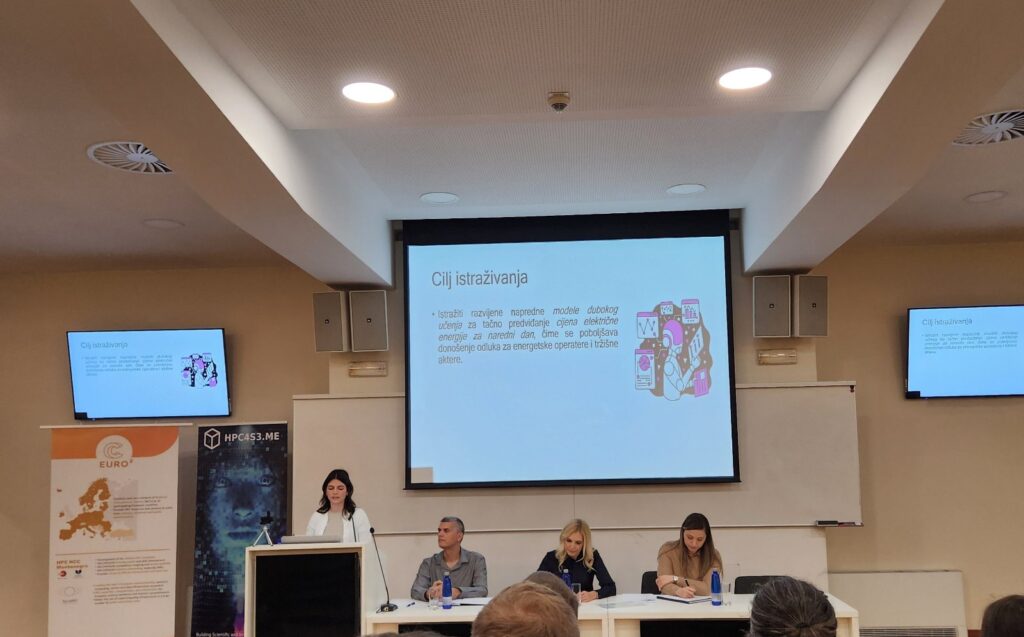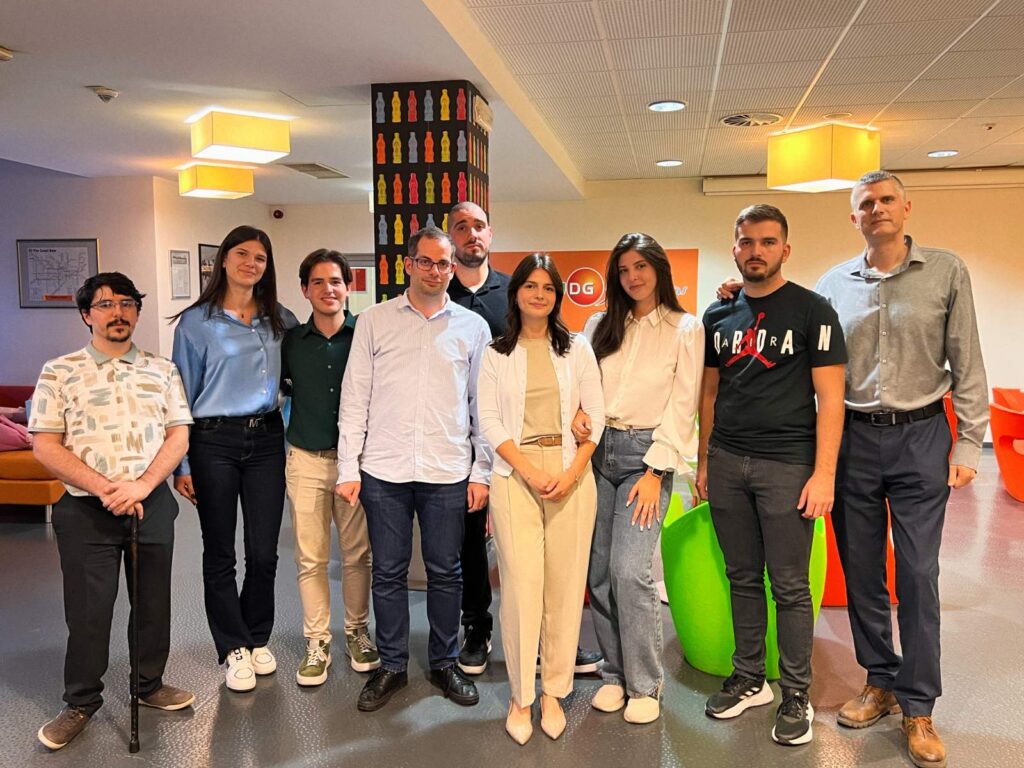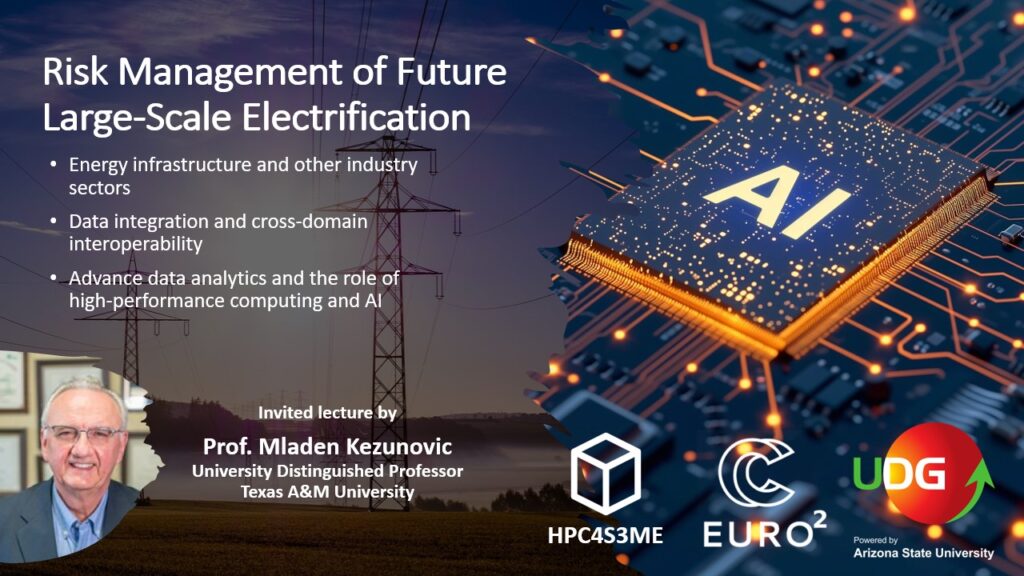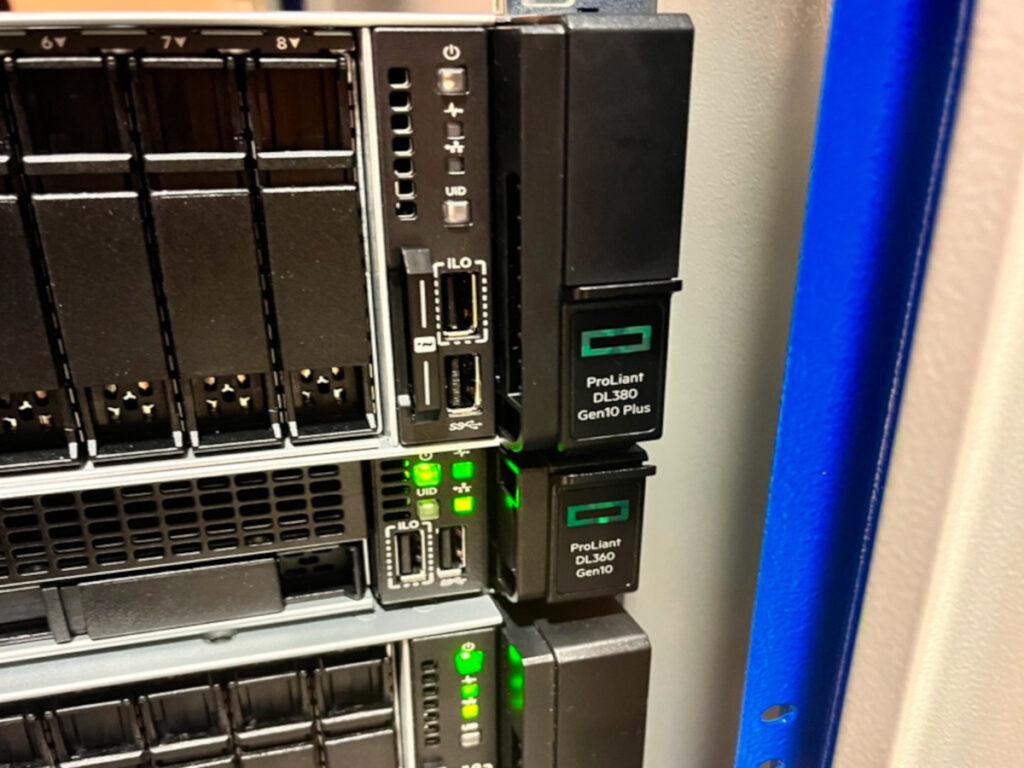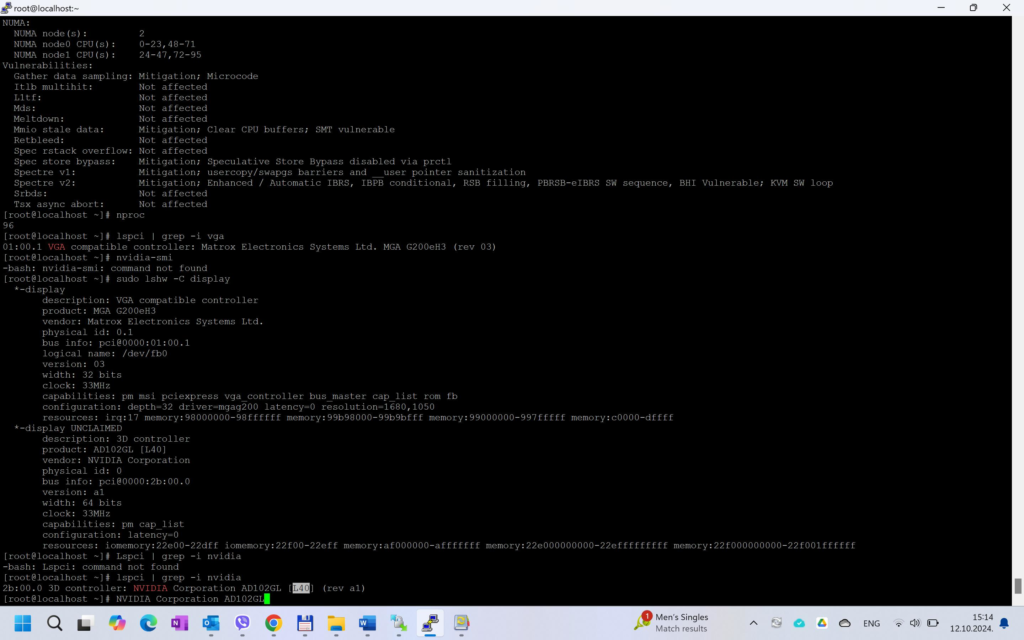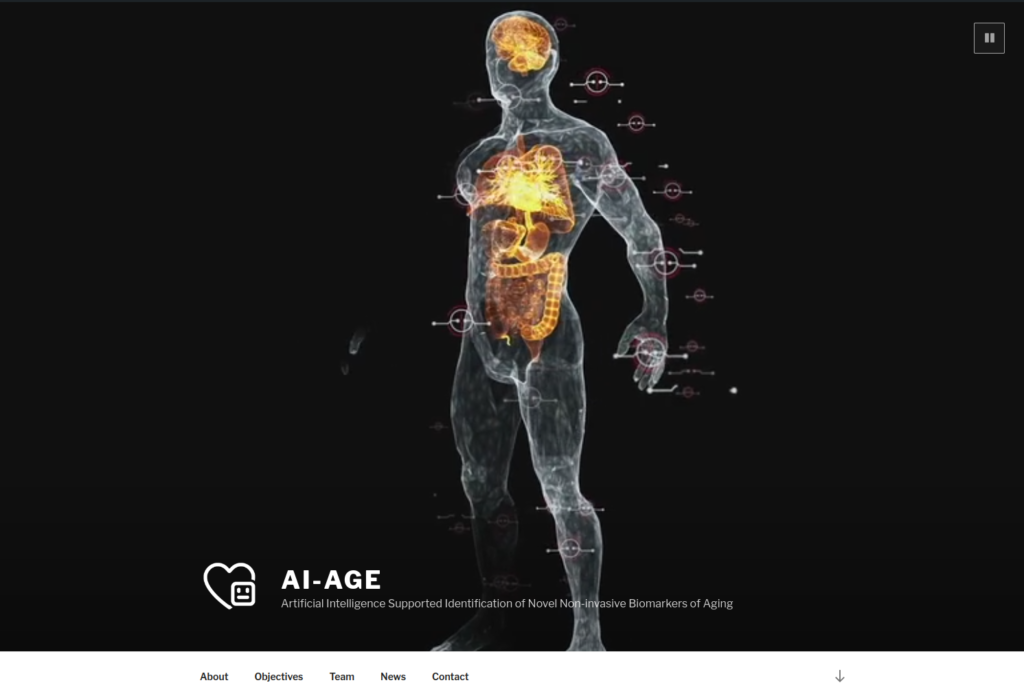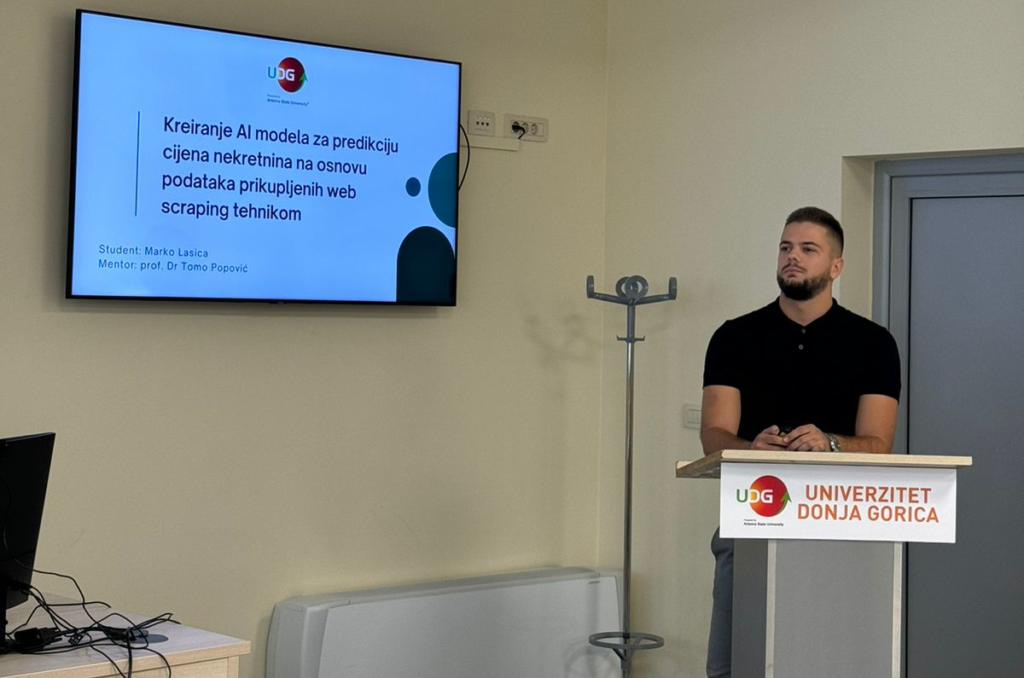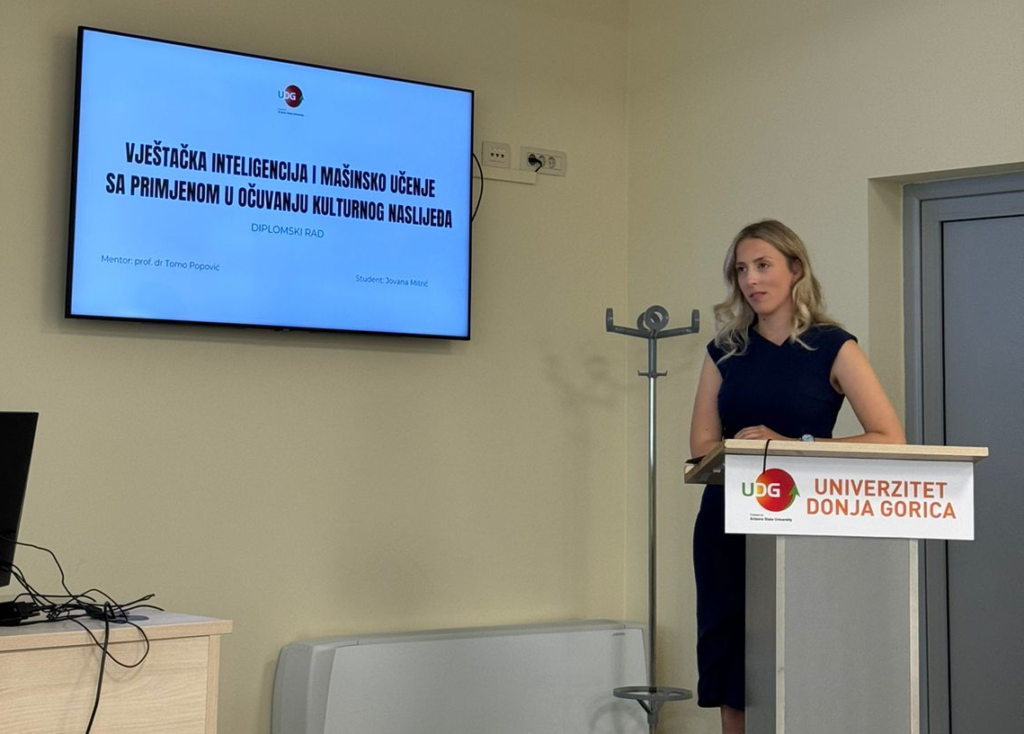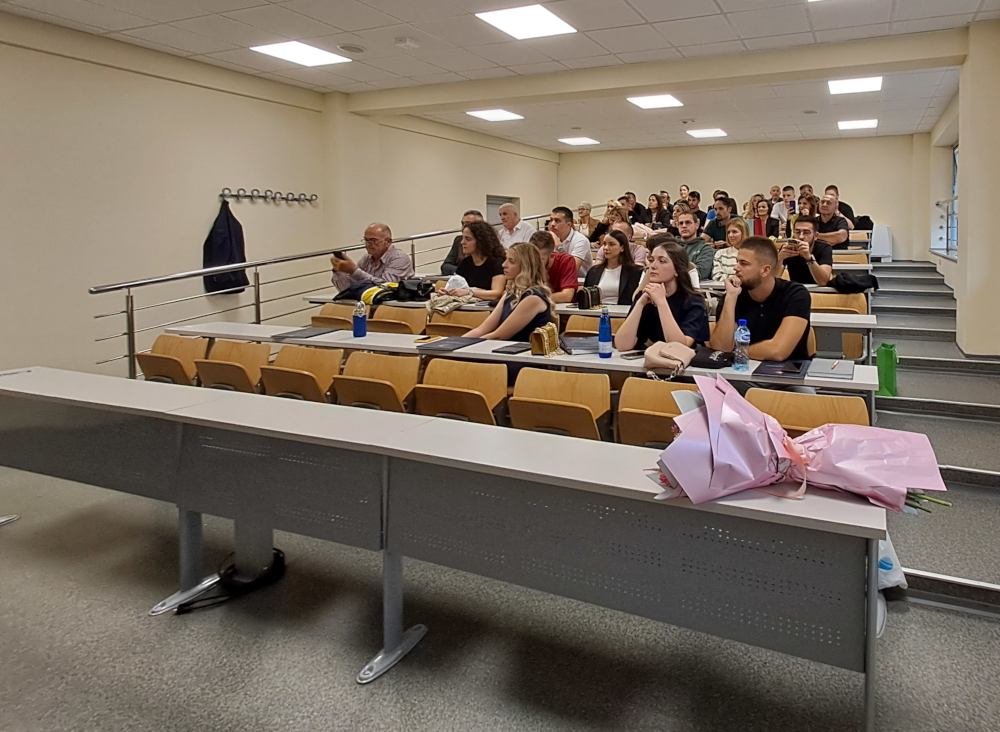As planned, the invited lecture “Risk Management of Future Large-Scale Electrification” by prof. Mladen Kezunovic took place on 25 October 2024 in Enterpreneurial nest at UDG. Threre was over 60 attendees including students, academics from Montenegrin universities and representatives from the industry. This workshop was organized in the context of HPC4S3ME project and supported by EUROCC NCC Montenegro team.
What are the risks? Methodology for risk management and mitigation? What data do we have and how do we manage all that data? How can AI/ML supported by HPC help?
Dr. Mladen Kezunovic is a University Distinguished Professor at Texas A&M with over 35 years of expertise in power engineering. Renowned globally, Dr. Kezunovic has authored over 600 papers and consulted for 50+ companies worldwide. His extensive research and industry contributions, notably in fault modeling, data analytics, and smart grids, have earned him IEEE Life Fellow status and recognition from the US National Academy of Engineering.
